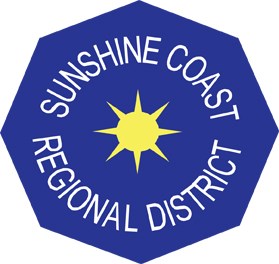Debates over the remaining items in the Sunshine Coast Regional District (SCRD) 2019 budget were put to rest at Round 2 deliberations on Monday.
Decisions from those deliberations brought the overall average tax increase for the electoral areas to 6.41 per cent, up from the projected 5.74 per cent following the first round of talks in February. The updated average won’t be finalized until budget adoption in late March.
The average changes in taxation for residential properties presented at the end of Round 2, also subject to change, are: 9.52 per cent in area A, 6.87 per cent in Area B, 5.72 per cent in Area D, 5.26 per cent in Area E, 7.87 per cent in Area F, 5.9 per cent in Sechelt Indian Government District (SIGD), 6.65 per cent for the District of Sechelt and 4.22 per cent for the Town of Gibsons. SCRD taxes make up only a portion of the municipalities’ and SIGD’s tax bills.
BC Assessment hasn’t finalized property assessments, which could change taxation values for individual properties.
During the March 4 meeting, directors voted on the remaining items in the budget.
They decided to move ahead with $25,000 to video-record SCRD meetings for the public, paid for via taxation. They also agreed to move ahead with new staffing positions in the water service, to be paid for through user fees.
Two longstanding items of discussion were also decided: library funding and the emergency planner role.
Following a lengthy discussion, directors voted to move ahead with $833,893 in funding for the Sechelt library, short $33,578 of the library’s original request. That amount is paid for via taxation.
Directors voted to move ahead with the new role of protective services manager, which will be funded through the SCRD’s fire departments and through the Sunshine Coast emergency planning function. Another staff position would be created to support that role, and a further $20,000 from operating reserves would be spent to review bylaws and regulations related to the services.
Directors voted to move ahead with all carry-forward items and confirmed funding for the $350,000 raw water reservoir feasibility study, paid for through reserves. They also voted to purchase a new forklift, also funded through reserves.
A few items were also dropped from the budget.
An appeal by Elphinstone director Donna McMahon to double the stipend paid to rural directors was voted down. “I’d like to get a year under my belt,” said Area F director Mark Hiltz when explaining his opposition to the motion.
Pratt and Lee agreed with Hiltz that it was too early to decide on pay changes. McMahon said she recognized “it’s a bigger issue” but she “wanted to put this forward as recognition of the problem.” Roberts Creek director Andreas Tize, who voted in favour of the stipend increase, said the pay bump could bring diversity to the board. A review of director pay is expected to be brought forward later this year.
Directors also voted against allocating money for “advocacy travel” – costs associated with directors travelling to Victoria or elsewhere to lobby the province and other entities on local government matters. Chief financial officer Tina Perreault suggested “the budget could sustain” those travel costs, even if directors travel more often compared with other years.
Directors also took a look at surpluses and deficits for the SCRD’s many services.
McMahon asked that staff provide a future report to explain the $110,835 deficit for the Rural Planning Services function. General manager of planning Ian Hall attributed the deficit in part to “unanticipated costs related to the volume of work required and wages and benefits.”
Pratt asked about the joint use agreement between the SCRD and School District No.46, which allows facilities to be used by both entities. The regional district incurred a deficit of $21,519 in its first year. Hall said “the agreement is working,” but details need to be worked out with the school district to avoid future deficits.
Final adoption of the budget is expected March 28.



